#homeric hymns
Explore tagged Tumblr posts
Text
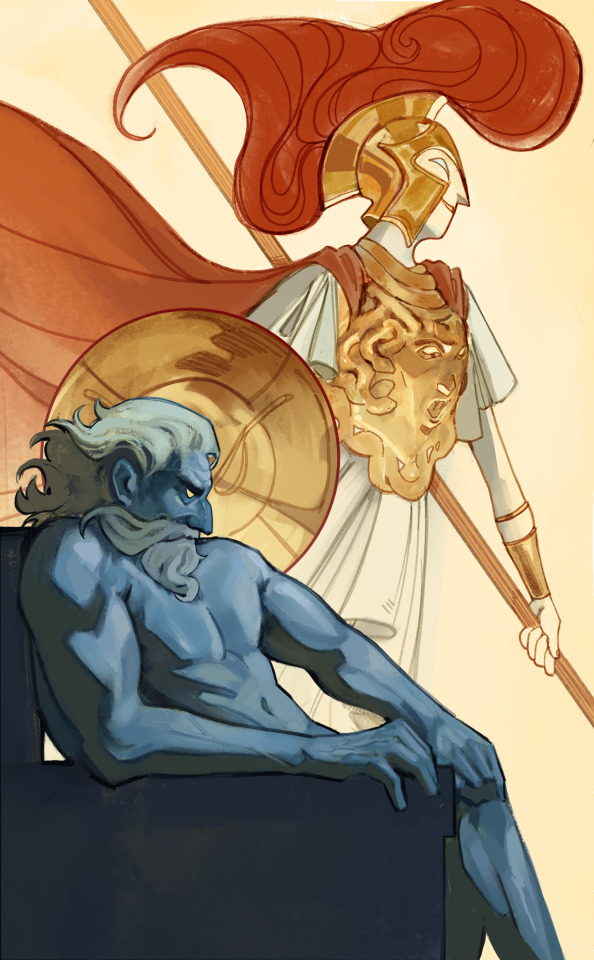
My piece for the Sing, O Muse! zine :D
12K notes
·
View notes
Text
“What is the difference between Orphic and Homeric Hymns?”
The Orphic and Homeric hymns are both significant in the context of ancient Greek literature and religion, but they differ in origin, purpose, and style.
1. Origin and Tradition:
- Homeric Hymns: These hymns are attributed to Homer, though they were likely composed by various poets in the 7th and 6th centuries BCE. They are part of the broader tradition of epic poetry and are generally seen as a way to honor the gods through narrative and invocation.
- Orphic Hymns: These hymns are tied to the Orphic tradition, which is associated with the mythical figure Orpheus. The Orphic hymns date from later periods (around the 3rd century BCE to the 3rd century CE) and reflect a more esoteric and philosophical approach to religion.
2. Content and Themes:
- Homeric Hymns: Each hymn typically praises a specific deity, recounting myths or stories related to their attributes, powers, and deeds. They often serve a liturgical purpose, meant to invoke the favour of the gods.
- Orphic Hymns: These often incorporate themes of mysticism, cosmology, and the soul's journey. They focus more on personal religious experience and metaphysical concepts, such as the nature of the divine and the afterlife.
3. Style and Structure:
- Homeric Hymns: They generally follow a narrative structure and employ traditional epic techniques, such as invocation and epithets. The language is grand and formal.
- Orphic Hymns: While also poetic, these hymns tend to use a more lyrical and mystical language, emphasizing philosophical ideas. The structure can be less consistent than that of the Homeric hymns.
While both types of hymns celebrate the gods, the Homeric hymns are more concerned with storytelling and invocation in a traditional epic style, whereas the Orphic hymns delve into mystical and philosophical themes, reflecting a different aspect of religious belief.
If I missed anything or messed anything up please let me know, I am up to hear about your opinions / knowledge on this too ^^
#hellenic pagan#hellenic polytheism#hellenic polythiest#hellenism#hellenistic#homeric hymns#orphic hymn#paganism
869 notes
·
View notes
Text









HOMERIC HYMN #26
TO LORD DIONYSUS
I now sing of boisterous Dionysos whose head is crowned with ivy,
the noble son of Zeus and glorious Semele.
The lovely-haired nymphs nurtured him and from his lordly father
took him to their bosoms to cuddle and nurse
in the dells of Nysa. He grew up by his father’s will
inside a sweet-smelling cave as one of the immortals.
But after the goddesses brought him up with many songs,
covered with ivy and laurel he started
haunting the wooded glens. The nymphs followed him
and he led the way as the boundless forest echoed with din.
So hail to you and hail to the luxuriance of your grapes!
Grant that we joyously reach these seasons
and many more years that will follow them.
(edited with the Apostolos Athanassakis trans.)
#lord dionysus#dionysus#dionysos#bacchus#dionysian#bacchic#bacchanalia#wine#greek mythology#greek myths#dionysus worship#dionysus deity#hellenic polytheism#hellenism#hellenic#hellenistic#homeric hymns#homeric hymn 26
196 notes
·
View notes
Text
Αὐτὰρ ἐγὼν οὐ λήξω ἑκηβόλον Ἀπόλλωνα ὑμνέων ἀργυρότοξον, ὃν ἠύκομος τέκε Λητώ. And I will never cease to praise far-shooting Apollo, god of the silver bow, whom rich-haired Leto bare.
- From: Homeric Hymn 3, To Delian Apollo
#hellenic polytheism#hellenic paganism#hellenic polytheist#hellenic pagan#hellenist#helpol#theoi#paganism#pagan#polytheism#polytheist#apollo#apollon#lord apollo#lord apollon#apollo god#apollon god#apollo deity#apollon deity#apollo devotee#apollon devotee#apollo worship#apollon worship#homeric hymns#hymn#hymns#Ἀπόλλων
434 notes
·
View notes
Text
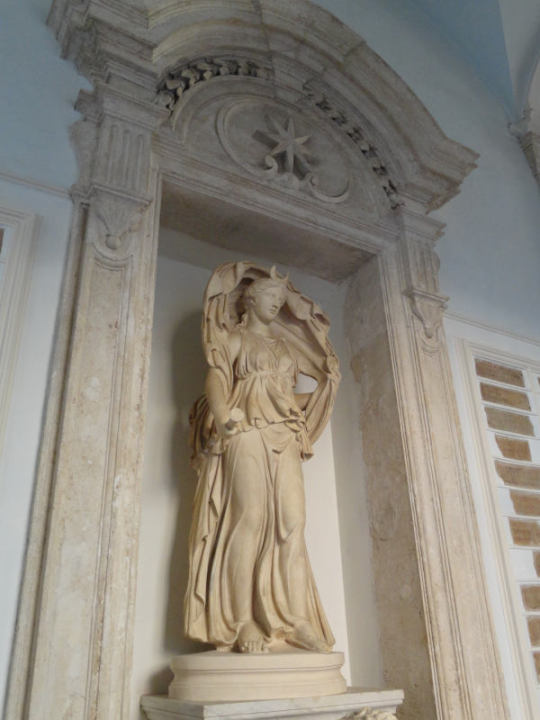

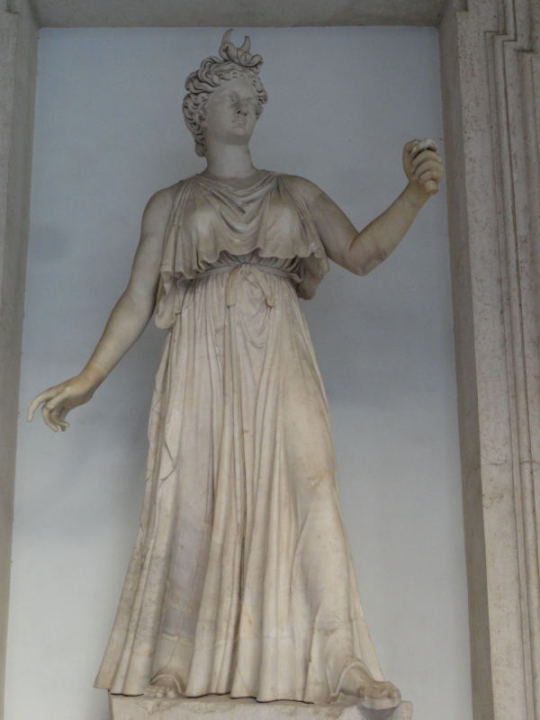
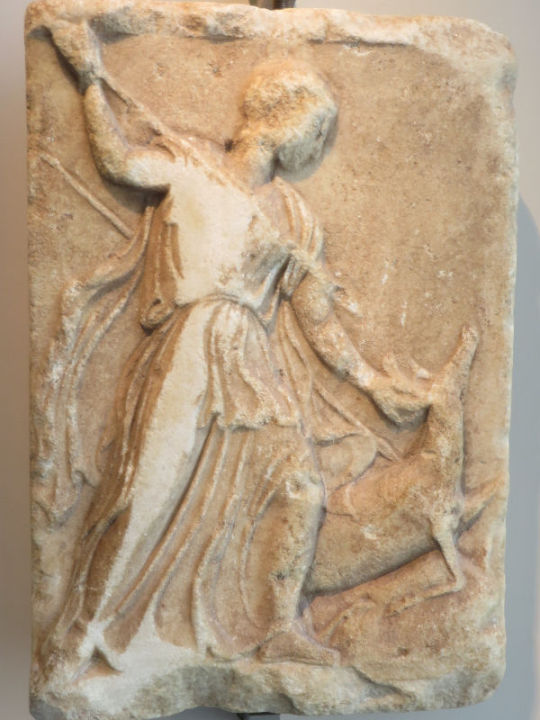



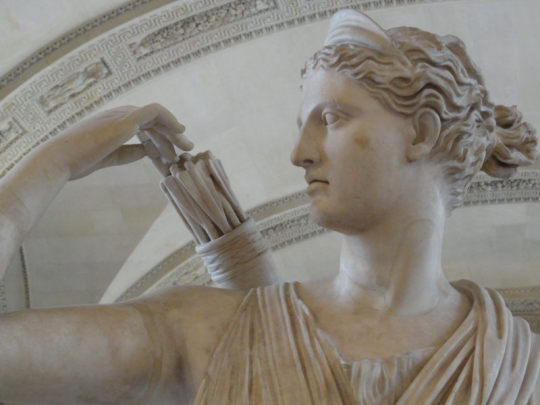
Ἄρτεμις / Diana
#dark academia#dark acadamia aesthetic#grey academia#classic academia#classical studies#classics#sculpture#museum photography#ancient greece#rome#poetry#homeric hymns#artemis#diana#greek mythology#classical mythology#mythology#ἐποίησα
557 notes
·
View notes
Text
ATHENA ISN’T A LESBIAN ATHENA ISN’T SECRETLY IN LOVE WITH POSEIDON ATHENA ISN’T IN LOVE WITH ANYONE WETHER ITS SEXUALLY OR ROMANTICALLY!!! SHE’S ASEXUAL WITHIN THE TEXT EVEN SAPPHO’S WORK ALONG WITH THE HOMERIC HYMNS MAKE IT CRYSTAL CLEAR THAT APHRODITE’S POWER HAS NO EFFECT ON HER YA’LL JUST HATE ASEXUALS BC THEY GET IN THE WAY OF YOUR HORNINESS AND SHIPPING!!!

#greek mythology#ancient greek mythology#greek pantheon#greek goddess#Athena#Sappho#athena goddess of wisdom#athena greek mythology#athena greek goddess#homeric hymns
125 notes
·
View notes
Text
The Homeric Hymn to Hermes - the birth of Hermes and the invention of the Lyre (for Sing O Muse Zine ‘24)

#greek mythology#tagamemnon#greek myth#illustration#Hermes#Homeric hymns#epic#epic the musical#this is definitely EPIC Hermes as a baby behaviour#greek myth comix#homer#greek myth retellings#comix#hermes my beloved#erm
211 notes
·
View notes
Text
If I see one more person refer to Demeter's winter as "a tantrum" I might actually commit murder, HER DAUGHTER GOT KIDNAPED AND NOBODY WHO COULD ACTUALLY DONE SOMETHING HELPED HER. SHE DID IT BECAUSE IT WAS THE ONLY WAY THEY WOULD LISTEN TO HER. ITS NOT A TANTRUM, IS A GRIEVING MOTHER WHO IS DOING EVERYTHING IN HER POWER TO REUNITE WITH HER MISSING DAUGHTER
#sick and tired of everyone doing my girl dirty#Demeter#Persephone#Demeter & Persephone#homeric hymns#greek mythology#greek myth
302 notes
·
View notes
Text

My Hephaestus for the Sing, O Muse! zine
268 notes
·
View notes
Text


Penelope & Odysseus doodle (post reunion) plus a fated meeting: comparison between how I see Homeric Odysseus vs the one from Epic !! lovem both but they sure are two different guys
#penelope#penelope of ithaca#odysseus#odysseus of ithaca#homers odyssey#the odyssey#tagamemnon#epic the musical#epic odysseus#homeric poems#homeric hymns#art#fanart#ancient greece#greek mythology#greek myths#my art#digital art#artist#illustration#sketches#doodles#digital sketches#digital doodles#telemachus of ithaca#telemachus#technically i can still tag him even if hes the autism creature#odypen
78 notes
·
View notes
Text

Apollo and Diana by Giovanni Battista Tiepolo
"Muse, sing of Artemis, sister of the far-shooter, Parthenos the virgin who delights in arrows, who was fostered with Apollon.
She waters her horses from Meles deep in reeds, and swifty drives her all-golden chariot through Smyrna to vine-clad Klaros where Apollon god of the silver bow, sits waiting for far-shooting delighter in arrows.
And so hail to you, Artemis, in my song and to all goddesses as well."
- Homeric Hymn 9 to Artemis (trans. Evelyn-White)
#helpol#artemis deity#apollo#apollon#apollo deity#artemis worship#artemis devotion#apollo worship#apollo devotion#homeric hymns#hymns#hellenic polytheism#deity work#deity worship#polytheism#prayers#deity prayers#quotes#artwork#artemis
416 notes
·
View notes
Text









HOMERIC HYMN #6
TO LADY APHRODITE
Of revered gold-wreathed and stunnning Aphrodite
I shallsing, to whose domain belong the battlements
of allsea-laved Cyprus where, blown by the moist breath of Zephyros,
she was carried over the waves of the resounding sea
in soft foam. The golden-crowned Horae
happily welcomed her and clothed her with heavenly raiment.
Then on her divine head they placed a well-wrought crown,
beautiful and golden, and in her pierced ears
flowers of brass and precious gold.
Round her soft neck and silver-white breasts
they decked her with golden necklaces such as the gold-filleted
Horae themselves are adorned with wherever they go
to the lovely dances of the gods and to their father’s house.
After they decked her body with every sort of jewel,
they brought her to the immortals, who saw and welcomed her,
with open arms, as each one wished
that he might take her home as his wedded wife;
for they marveled at the looks of violet-crowned Kythereia.
Hail, honey-sweet goddess of the fluttering eyelids!
Grant me victory in this contest and arrange my song.
I shall remember you and another song as well.
(trans. by Apostolos Athanassakis)
#aphrodite#aphrodite deity#hellenic polytheism#hellenic paganism#hellenic#hellenism#hellenismos#helpol#greek mythology#ancient greek gods#greek gods#lupercalia#valentines day#happy valentines#homeric hymns#homeric hymn 6
133 notes
·
View notes
Text

---I begin to sing of Dionysos ivy-crowned (kissokomes) the loud-crying (eribromos), splendid son of Zeus and glorious Semele. The rich-haired Nymphai (Nymphs) received him in their bosoms from the lord his father and fostered and nurtured him carefully in the dells of Nysa, where by the will of his father he grew up in a sweet-smelling cave, being reckoned among the immortals. But when the goddesses had brought him up, a god oft hymned, then began he to wander continually through the woody coombes, thickly wreathed with ivy and laurel. And the Nymphai followed in his train with him for their leader; and the boundless forest was filled with their outcry. And so hail to you, Dionysos god of abundant clusters (polystaphylos)! Grant that we may come again rejoicing to this season, and from that season onwards for many a year---
-Homeric Hymn to Dionysos
#hellenic polytheism#hellenic worship#hellenic#lord dionysos#dionysos#dionysos worship#homeric hymns#dionysos diety#dionysos hymns#undeadwhilealive#helpol#helpol dionysos
56 notes
·
View notes
Text

Lady Selene,
Goddess of
The Lunar Month
The Greek months start with the new moon and were then divided into three ten day periods. The first ten days were presided over by the waxing moon, the next ten were the near full and full moon, and the last ten was the waning moon. Festivals including the lucky and unlucky days of the month were measured in the cycles of the moon.
Evelyn-White. "Long-winged Meme... at eventime in the mid-month: then her great orbit is full and then her beams shine brightest as she increases. So she is sure token and a sign to mortal men" (Homeric Hymn, 32 to Selene: C7th- 4th B.C.)
Childbirth
Pregnancies were commonly measured in lunar months, so Lady Selene had a natural association with childbirth.
Timotheus. "Through the blue-black vault of the starts and of Selana who gives swift childbirth." (Campbell Vol. Greek Lyric V, Frag 803: C5th B.C.)
Dew
The moon was believed to nourish plants and animals with her dew. Lady Selene was associated with Ariadne, wife of Dionysus as the goddess of nourishing.
Cicero. "Luna the Moon's course also has a sort of winter and summer solstice; and she emits many streams of influence, which supply animal creatures with nourishment and stimulate their growth and which cause plants to flourish and attain maturity." (De Natura Deorum, 2.14: 45 B.C.)
and the Moon
Tryphiodorus. "When Mene (the Moon) [Selene], full with grey fire, gilds with her face the gleaming heaven: not when, sharpening her pointed horns, she first shines, rising in the shadowless dusk of the month, but when, orbing the round radiance of her eye, she draws to herself the reflected rays of the sun." (The Taking of Ilias, 514:C6th A.D.)
Who is Selene?
The titan goddess of the moon. She was depicted as a woman riding a sidesaddle on a horse. Her lunar crescent was set upon her head as a crown. She was said to sometimes drive a team of oxen and her lunar crescent was likened to a pair of bull's horns.
Symbolisms of Selene
Crystal: Moonstone
Colors: Silver, Grey-white, and white
Day of the week: Monday
Scents/Flowers: Myrtle, willow, white poppy, white rose, and wall flower.
Animals: Bulls and horses
Offerings
Silver jewelry, curved crescent knives, silver/white coins, silver/white candles, cups of (salt) water, seed pods, mirrors, white flowers, any sea/tide related offerings, mooncakes, writing hymns.
Ways to worship
Wearing silver jewelry
Wearing moon colored clothing
New Moon: banishing and undoing things.
Waxing Moon: offerings that relate to things you want more of. Great time for offerings
Full Moon: Harvest what you've been working on
Waning Moon: leave offerings that you want less of.
Taking items from your altar outside or on a windowsill during a full moon.
Cleansing the altar and offering items with water charged with moonlight during a new moon.
Going for a walk under the moonlight(with safety precautions)
Talking to the moon
Learning astrology
Stargazing
Meditation at night.
#selene deity#hellenic worship#paganism#pagan#greek gods#divine#altar#hellenic gods#selene#pagan witch#witchblr#paganblr#witch#goddess worship#deity worship#goddess#offering#hymn#homeric hymns#moon#deity offerings
147 notes
·
View notes
Text

Here’s a more accurate representation of this year’s solar Eclipse! Artemis and Apollo are (hopefully) getting along well enough.
#artemis#apollo#artemis deity#apollo deity#sun#moon#solar eclipse#eclipse#art#artists on tumblr#drawing#greek mythology#tagamemnon#iliad#trojan war#the iliad#the odyssey#odyssey#greek gods#greek god#homeric epics#homeric hymns#olympians#olympus#sketches#sketch#doodle
274 notes
·
View notes
Text









Ἑστια - Hestia
"Hestia, you who tend the holy house of the lord Apollon, the Far-shooter at goodly Pytho, with soft oil dripping ever from your locks, come now into this house, come, having one mind with Zeus the all-wise--draw near, and withal bestow grace upon my song."
Homeric hymns from theoi / Images from pinterest.
Feel free to ask questions and/or submit posts in our ask box!
#archives: boards#archives: polytheism#hellenic polytheism#hellenic polytheist#hellenic gods#greek gods#greek deities#olympian gods#hellenic worship#deity worship#deities#hellenic polytheistic#homeric hymns#hellenic deities#greek worship#hestia#lady hestia#hestia worship
46 notes
·
View notes